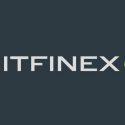Ethereum And Ripple Are Most Likely ‘Non-Compliant Securities’ According To CFTC Chairman
A previous markets regulator has claimed that under the US law, Ethereum and Ripple which are the two major valuable altcoins are possibly noncompliant securities.”
According to Garly Gensler, who was the former Commodity Futures Trading Commission (CFTC), Ether and Ripple have been launched through unregistered securities offerings and are operating illegally on the various cryptocurrency exchanges that list them. Presently working as a blockchain researcher at the Massachusetts Institute of Technology (MIT), where he is also acting as a special adviser to the blockchain-friendly Media Lab and senior lecturer at the Sloan School of Management noted that “There is a strong case for both of them — but particularly Ripple — that they are noncompliant securities.”
According to him, both cryptocurrencies have been sold by their developers and bought purposely as investments based on speculation. On the other hand, this is not the same situation as bitcoin which makes it unlikely for the currency to be regarded as a security by regulators.
Nonetheless, Gensler stated that even though Ethereum has been operating for almost three years and has been able to get a more decentralized development structure, it has higher chances of avoiding “non-compliant securities” label than Ripple and general other ICOs.
“XRP does not give its owners an interest or stake in Ripple, and they are not paid dividends,” Ripple spokesman Tom Channick told the NYT. “XRP exists independent of Ripple, was created before the company and will exist after it.”
For the time being, Gensler explains that 2018 will be a significant year for the cryptocurrency industry, as regulators drive to play a more active role in policing ICOs and other token sales that supposedly constitute unregistered securities offerings.
“2018 is going to be a very interesting time,” Gensler said. “Over 1,000 previously issued initial coin offerings, and over 100 exchanges that offer ICOs, are going to need to sort out how to come into compliance with U.S. securities law.”





